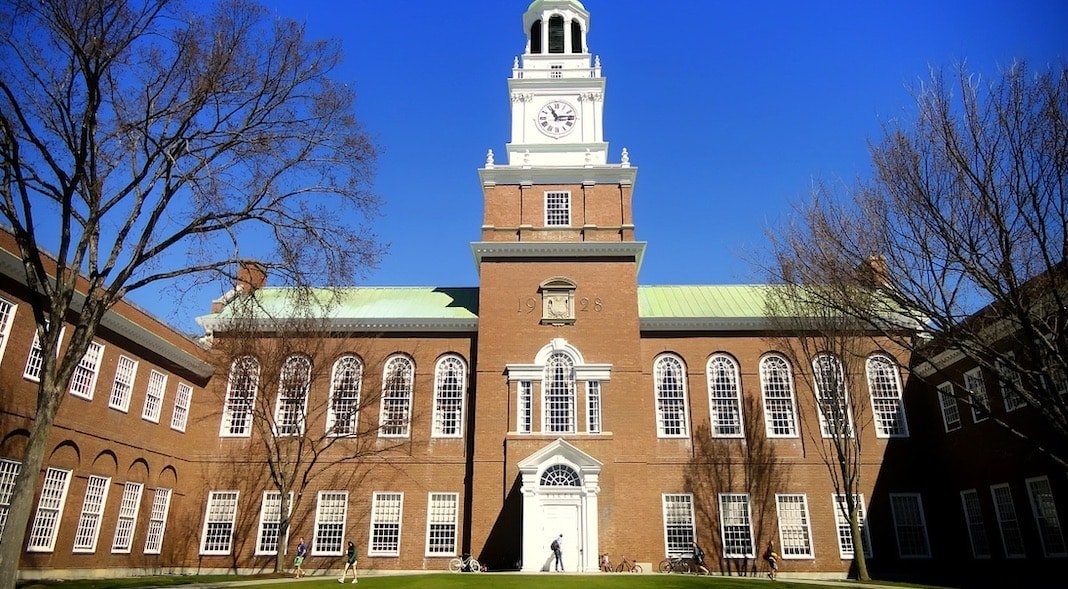The Dartmouth Plagiarism Controversy
How a battle over authorship has pitted a prestigious journal against a prestigious school...

Last week, a major plagiarism scandal has rocked the field of medical research.
The story, which had actually been brewing for approximately two years, has grown to involve many of the fields biggest names including Dartmouth College, The New England Journal of Medicine (NEJM), the Committee on Publication Ethics (COPE) and researcher H. Gilbert Welch.
On the surface, it’s a simple case. A researcher claims that he and a colleague were not given proper credit for their contributions on an important paper. Those allegations were investigated by the college, found to be true and the researcher responsible resigned.
However, the story is much more complicated than that. The author involved staunchly denies any wrongdoing and the journal where the paper was published is standing behind him. This has created some deep battle lines in the medical research community and fears about the long term implications for this case.
So what exactly is happening? To answer that we have to look at the case and understand both why it’s unique and why it’s extremely common.
As you’ll see, what’s most interesting in this case isn’t what happened, but that we’re talking about it at all…
A Dispute in Authorship

The story begins in October 2016 when Welch, along with three other listed co-authors, published a paper in the prestigious New England Journal of Medicine entitled “Breast-Cancer Tumor Size, Overdiagnosis, and Mammography Screening Effectiveness.”
The paper made the claim that the large push for earlier detection of breast cancer was leading to significant overdiagnosis and treatment of breast cancer and that the majority of the tumors detected would never have led to clinical symptoms.
The paper was considered an important one in the field. It resulted in many news articles about it and, according to Google Scholar, has been cited 162 times in under 2 years.
However, shortly after the paper was published, Dartmouth associate professor Samir Soneji came forward and alleged that Welch failed to properly attribute both him and Hiram Beltrán-Sánchez, a researcher at UCLA, for their contributions.
According to Soneji, Welch emailed him in May 2015 asking for a slide from a presentation he had presented and during a seminar that Welch attended. Soneji offered the slide but said that, “If this result/figure ultimately becomes part of a paper, I’d like the opportunity to be a coauthor (sorry if this comes across as a bit odd — I’ve had a few negative experiences this year when sharing results).”
Welch, however, assured him that it wasn’t going to appear in a paper and that the slide was for use in a class. Soneji went on to submit a paper containing those findings to the NEJM but was rejected. Welch submitted his paper the following year and had it accepted. This resulted in Soneji’s paper being rejected from another journal for being too similar to Welch’s work.
After Soneji came forward, Dartmouth began a twenty-month investigation and eventually sided with Soneji and Beltrán-Sánchez. Welch protested this, saying in an interview with Retraction Watch that his work (and the work of his co-authors) was a “natural progression of his work” and that, “the underlying data are publicly available – all the analyses, all the figures and all the writing in the article are my co-authors’ and mine.”
At the time, Dartmouth had taken no action against Welch but, a month later, the school demanded that Welch both stop teaching at the school and add Soneji as a co-author of the disputed paper. Welch refused and resigned.
The NEJM, however, has declined to retract the article. Saying in a letter that they see this as an “authorship dispute” and not “sufficient grounds for retraction of the article.” They cite the standards of the Office of Research Integrity when announcing their decision.
This puts the NEJM at odds with COPE, an organization that offers best practice and advice in the area of publication ethics. In their ruling, COPE said that, “a retraction should be considered,” given the nature of the alleged plagiarism.
And this is where the case sits today. Welch is out at Dartmouth though his paper is neither retracted nor lists Soneji as a co-author. The issue is seemingly at a standstill and that leaves both the research and the careers involved in something of a limbo.
The Battle Over Authorship

With research, battles over authorship are extremely common. COPE alone has dealt with over 130 such cases, which represent only a small fraction of such disputes.
What makes this case unique is that it involves both a prominent paper, a prominent researcher and a prominent journal. In short, it’s unique because it’s news.
The fact that there are so many authorship disputes shouldn’t come as a surprise to anyone. First coined in 1932, “Publish or perish” has become something of a cliche to describe the never-ending pressure on academics to publish new research.
Basically, academics, whether to maintain their current positions or advance, have to prove that they are doing meaningful work in the field. One of the few ways to do that is to continuously publish papers in journals.
This has led to a set of perverse incentives that rewards quantity of publication over quality. This has led to predatory journals, which publish nearly any paper for a small fee, shoddy research and many disputes over authorship.
That, in turn, is where this case leaves us. Soneji and Welch are both operating under the same pressures. However, from Soneji’s perspective, he was denied not only authorship credit on Welch’s paper but the chance to publish his research because it was “too similar” to Welch’s.
However, from Welch’s perspective, Soneji’s contribution didn’t rise to the level of authorship and, as such, it was appropriate to leave him off.
In the middle of all of this is a paper that, despite the authorship dispute, appears to be solid research with potential life-changing consequences.
What To Do?

Right now there’s a huge divide over the paper. The Office of Research Integrity (ORI), the office that investigates misconduct claims that involve federal funding, doesn’t even look into claims of authorship and, according to Welch, declined to issue a ruling on the case in 2017. They, along with the NEJM, see no reason to retract this paper.
However, COPE, Dartmouth and Soneji all wish to see the paper either be retracted or, at the very least, edited to add Soneji as an author. Though the NEJM seems open to this, it has not happened yet.
But this raises a question: Does Soneji deserve to be an author?
According to the ORI, an author is anyone who does the following:
- Was intimately involved in the conception and design of the research
- Assumed responsibility for data collection and interpretation
- Participated in drafting the publication
- Approved the final version of the publication
The ORI recommends anyone who doesn’t contribute through the full process of the paper should be put in the acknowledgements. However, the ORI admits that this is an area open for debate and that standards vary from journal to journal and discipline to discipline.
By these standards, Soneji is not a co-author. He contributed a figure to the paper. Though Soneji claims that the figure and his work is also related to methodologies that Welch used, it doesn’t appear that he was involved in the writing of the paper itself.
But this raises another serious problem: Soneji isn’t attributed anywhere in the paper, in any capacity. He’s not an acknowledgement, his contribution isn’t cited in the references and his name appears nowhere in it.
This raises this from just another case of disputed authorship into the territory of more traditional plagiarism. This is compounded by the fact that Soneji asked for the opportunity to be a co-author, meaning participate in the research, if his work was going to be used. He was denied that opportunity.
Retracting the article risks removing potentially important research from circulation. Ignoring the issue risks condoning plagiarism and authorship issues at one of the most prestigious journals.
The obvious solution is to edit the work to indicate Soneji and Beltrán-Sánchez’s contribution. But what form does that take? Authorship? Acknowledgement? Citation of the specific materials?
There’s no easy answer and, without being privy to the details of the investigation and having greater expertise in this discipline, it’s hard for me to say.
Still, there’s no doubt that it feels as if Soneji and Beltrán-Sánchez deserve more than they got, even if what they want may not be reasonable either.
Bottom Line
This story could have ended much differently. If you roll back the clock to 2015, when Welch first approached Soneji about using his work, Welch could have chosen to be completely honest about his intentions but say that he didn’t feel comfortable making Soneji a co-author.
If he had attributed Soneji and Beltrán-Sánchez’s work, either as an acknowledgment or just as a regular citation, there wouldn’t be this debate about authorship. Though Soneji and Beltrán-Sánchez may not have been satisfied with the level of credit they got, it’s unlikely this case would have become as serious as it did.
Because Welch didn’t attribute the work he used, he not only harmed two other researchers, but jeopardized his own research, which is widely seen as extremely important.
The case, above all else, should be a reminder to be completely transparent about authorship and attribution when conducting research. What should have been, at worst, a small disagreement has led to the resignation of a prominent researcher and a divisive battle over authorship.
It could have been avoided. It should have been avoided. That, no matter the final outcome, should be the ultimate takeaway from this story.
Want to Reuse or Republish this Content?
If you want to feature this article in your site, classroom or elsewhere, just let us know! We usually grant permission within 24 hours.
